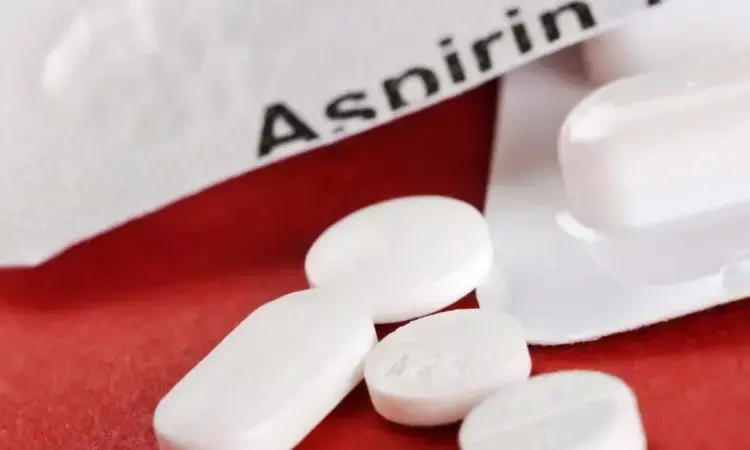- Home
- Medical news & Guidelines
- Anesthesiology
- Cardiology and CTVS
- Critical Care
- Dentistry
- Dermatology
- Diabetes and Endocrinology
- ENT
- Gastroenterology
- Medicine
- Nephrology
- Neurology
- Obstretics-Gynaecology
- Oncology
- Ophthalmology
- Orthopaedics
- Pediatrics-Neonatology
- Psychiatry
- Pulmonology
- Radiology
- Surgery
- Urology
- Laboratory Medicine
- Diet
- Nursing
- Paramedical
- Physiotherapy
- Health news
- Fact Check
- Bone Health Fact Check
- Brain Health Fact Check
- Cancer Related Fact Check
- Child Care Fact Check
- Dental and oral health fact check
- Diabetes and metabolic health fact check
- Diet and Nutrition Fact Check
- Eye and ENT Care Fact Check
- Fitness fact check
- Gut health fact check
- Heart health fact check
- Kidney health fact check
- Medical education fact check
- Men's health fact check
- Respiratory fact check
- Skin and hair care fact check
- Vaccine and Immunization fact check
- Women's health fact check
- AYUSH
- State News
- Andaman and Nicobar Islands
- Andhra Pradesh
- Arunachal Pradesh
- Assam
- Bihar
- Chandigarh
- Chattisgarh
- Dadra and Nagar Haveli
- Daman and Diu
- Delhi
- Goa
- Gujarat
- Haryana
- Himachal Pradesh
- Jammu & Kashmir
- Jharkhand
- Karnataka
- Kerala
- Ladakh
- Lakshadweep
- Madhya Pradesh
- Maharashtra
- Manipur
- Meghalaya
- Mizoram
- Nagaland
- Odisha
- Puducherry
- Punjab
- Rajasthan
- Sikkim
- Tamil Nadu
- Telangana
- Tripura
- Uttar Pradesh
- Uttrakhand
- West Bengal
- Medical Education
- Industry
Low-dose aspirin not suitable for primary prevention of stroke in older adults and should be taken with caution: JAMA

Australia: A secondary analysis of the ASPREE trial, including 19 114 older adults, suggests that low-dose aspirin may have no part in the primary prevention of stroke and caution be taken with aspirin use in older people prone to head trauma.
The study, published in JAMA Network Open, found a statistically significant 38% increase in intracranial bleeding resulting from a combination of hemorrhagic stroke and other intracerebral haemorrhage causes among people randomized to aspirin. The difference in the incidence of ischemic stroke was not statistically significant. The findings may be particularly relevant to older people prone to intracranial bleeding development after head trauma.
"These data support the USPSTF recommendation that low-dose aspirin should not be prescribed for primary prevention in healthy older adults," the researchers wrote.
Aspirin is an antiplatelet agent that has been used in low doses of 75-100 mg/d for primary and secondary prevention of stroke. Despite some recent adverse findings, it continues to be used widely for primary and secondary prevention of stroke. Its major adverse effect is an increased tendency of bleeding.
In older individuals, the balance between the potential reduction of ischemic stroke events and increased intracranial bleeding has not been established. Geoffrey C. Cloud, Monash University, Melbourne, Australia, and colleagues aimed to establish the risks of ischemic stroke and intracranial bleeding among healthy older people receiving daily low-dose aspirin.
For this purpose, the researchers conducted a secondary analysis of the ASPREE randomized, double-blind, placebo-controlled trial of daily low-dose aspirin among community-dwelling people living in Australia or the US. Participants included older adults free of symptomatic cardiovascular disease (CVD). Recruitment was between 2010 and 2014 and followed up for a median of 4.7 years. 9525 individuals were randomized to daily 100-mg enteric-coated aspirin and 9589 individuals received matching placebo.
The researchers reported the following findings:
- Aspirin did not produce a statistically significant reduction in the incidence of ischemic stroke (hazard ratio [HR], 0.89).
- A statistically significant increase in intracranial bleeding was observed among individuals assigned to aspirin (1.1% individuals compared with those receiving placebo (0.8% individuals; HR, 1.38). This occurred by an increase in a combination of subdural, extradural, and subarachnoid bleeding with aspirin compared with placebo (0.6% versus 0.4% individuals; HR, 1.45).
- Hemorrhagic stroke was recorded in 0.5% of individuals assigned to aspirin compared with 0.4% of individuals in the placebo group (HR, 1.33).
"Our study found a significant rise in intracranial bleeding with daily low-dose aspirin but no significant reduction of ischemic stroke," the researchers wrote. "These findings are particularly relevant for older individuals prone to developing intracranial bleeding following head trauma."
Reference:
Cloud GC, Williamson JD, Thao LTP, et al. Low-Dose Aspirin and the Risk of Stroke and Intracerebral Bleeding in Healthy Older People: Secondary Analysis of a Randomized Clinical Trial. JAMA Netw Open. 2023;6(7):e2325803. doi:10.1001/jamanetworkopen.2023.25803
Dr Kamal Kant Kohli-MBBS, DTCD- a chest specialist with more than 30 years of practice and a flair for writing clinical articles, Dr Kamal Kant Kohli joined Medical Dialogues as a Chief Editor of Medical News. Besides writing articles, as an editor, he proofreads and verifies all the medical content published on Medical Dialogues including those coming from journals, studies,medical conferences,guidelines etc. Email: drkohli@medicaldialogues.in. Contact no. 011-43720751


